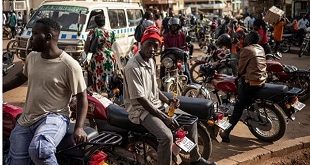
By Gerald Padde Auku
Only 16% own any form of land and formal government processes marginalize this majority working force
To Ugandan’s, land means more than just a piece of soil or real estate, it is a link to the past and long seeded heritage that combines a sense of ownership and belonging. If well managed through inclusive and well implemented legislations, land can potentially serve as a tool to improve livelihoods and achieve sustainable development that any leadership in Africa or in the world would wish for its citizens.
However, the changing political and economic climate has placed increasing monetary value on land. This is perpetuated by increasing urbanisation, discovery of naturally resources such as oil and other minerals, and high poverty levels. These realities, coupled with unregulated guidelines on land transactions, have led to the emergence of many middlemen (dealers) in the sector. As a result of the selfishness of men and society gendered perception, this has impacted most negatively on women’s relationship with land.
Women play a monumental role in agriculture in Uganda according to scholars, yet only 16% own any form of land in their own right. The formal processes of government marginalise women’s relationship to land though they make up the majority of the informal land working force. This is in spite of the fact that in 1998, Uganda enacted a Land Act that was supposed to address historical gender imbalances in land ownership. This legislation claimed it would herald an era of women’s rights support. The reality has proved different.
The Land Act was supposed to ensure that the constitutional land rights of women were protected, particularly by reinforcing and reforming customary laws and practices. However, customary laws have persisted and entrenched patriarchal norms within society that marginalise women’s access to land regardless of relevant legislation.
Laws and practices provide ownership of land to men or male heads of families while women are given limited secondary rights, in the form of access and use of the land through their male representative.
Currently there are many barriers to women’s land ownership though Uganda’s statutory laws grant men and women equal rights over land. Unfortunately the application of these laws is almost non-existent. The recognition of both statutory laws, which are in theory gender neutral, and customary law, which are culturally bound and patriarchal, has created legal pluralism that pits the laws against one another. This tension is further aggravated by a lack of legal knowledge among woman and weak institutional capacity that prevents effective enforcement and administration of laws.
Access to land is limited by both the formal and informal set-ups, whether it is socioeconomic status, insecurity, or government policy. However, since women are disenfranchised by gender, their oppression and limited access to land is doubled, purely by gender. These barriers to land ownership and knowledge prohibit women from exercising their legal control over land, thus perpetuating cultural norms of male dominance that disenfranchise women.
To mitigate women’s disenfranchisement, vulnerability, and insecurity when it comes to land right, use and ownership, the government and civil society need to critically work closely to fix the mess.
The stripping of women in protests over land as seen recently in Uganda is a sign of discontent and only option to express the grief. The loss of trust in rule of law, corruption at both informal and formal institutions is primarily the contributing factor to the behavior.
The government should seriously consider implementing the existing laws as well as passing the national land police and expediting the Succession Bill that has been shelved. Women’s representation in land committees as well as land boards should be enforced. This will allow women a level of control that will not only improve their livelihood but also ensure sustainable development given their numbers and the responsibility in communities and homes.
****
Gerald Padde Auku works with Transparency International Uganda
 The Independent Uganda: You get the Truth we Pay the Price
The Independent Uganda: You get the Truth we Pay the Price



